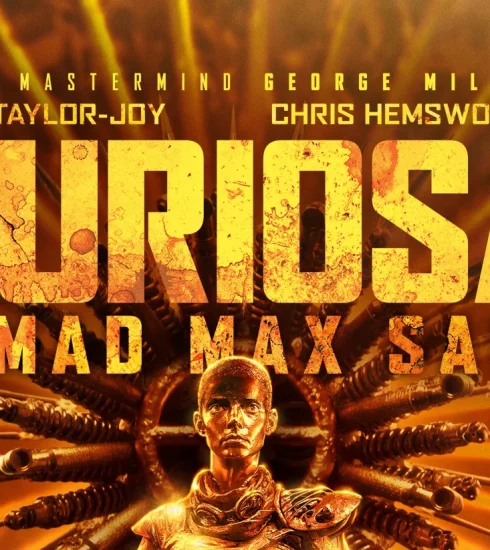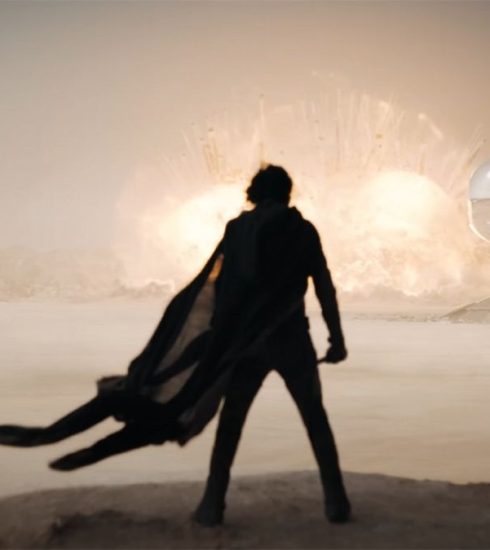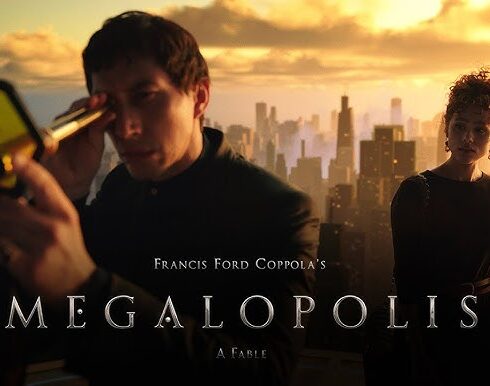Movie Review: Thunderbolts*
How was Hawkeye in the Avengers? That’s always the old joke, that some guy with a bow and arrow shouldn’t be sharing equal billing with super soldiers and sorcerers. Yet the genius of the original run of Marvel films was how it melded the cosmic and the street level, making characters like Black Widow mortal and yet still invaluable to the team.
That’s where Marvel has struggled in recent years, as the two halves of its identity have increasingly diverged. Thunderbolts*, the 36th film in the franchise and the final chapter in Phase 5, doesn’t try to bridge that divide. Instead, it jumps directly into it, asking how the gun-toting antiheroes of its darker side cope in a universe of gods and monsters.
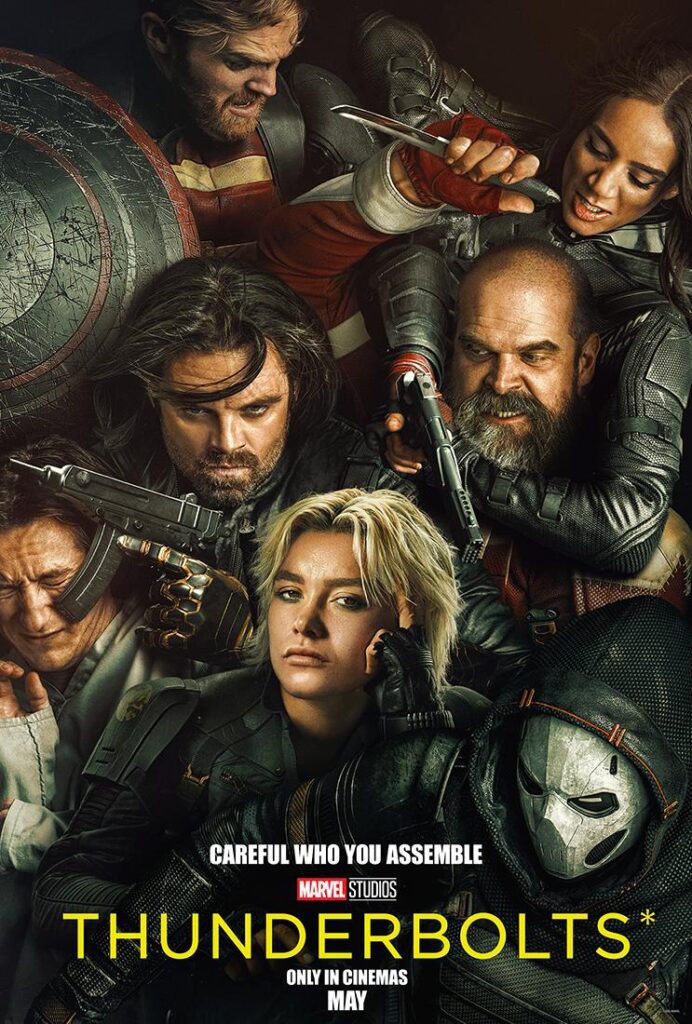
In the comics, the Thunderbolts have been one of Marvel’s loosest teams: originally a bunch of villains masquerading as heroes, the name was later repurposed for a rehabilitation initiative to get superpowered crooks on the right side of the law. In the script by Eric Pearson (Thor: Ragnarok) and Joanna Calo (TV’s The Bear), the members desperately don’t want to be in a team at all. Well, all save the Red Guardian (David Harbour in full-throated “gleeful idiot” mode). He has never been happier than with the possibility that he could count U.S. Agent, John Walker (Russell), unstoppable mimic Taskmaster (Kurylenko), the untouchable Ghost (John-Kamen), newly minted Congressman Bucky Barnes (Stan), and of course his adopted daughter, professional assassin Yelena Belova (Pugh), as comrades. Oh, and Bob.
Who is the delicate and confused Bob (Pullman)? He’s some guy that the not-a-team picks up along the way. They’re all loose cannons, the kind of morally flexible killers sent in to clean up someone else’s mess with bullets and explosives. As Yelena’s late sister Natasha Romanoff would say, they all have a lot of red in their ledger. Natasha worked out how to navigate this superhero life in a way that eludes the increasingly disillusioned Yelena who, like the rest of the Thunderbolts* (that asterisk is very deliberate), have been earning a living as assasins for the new CIA Director Valentina Allegra de Fontaine (a delightfully unrestrained Louis-Dreyfus).
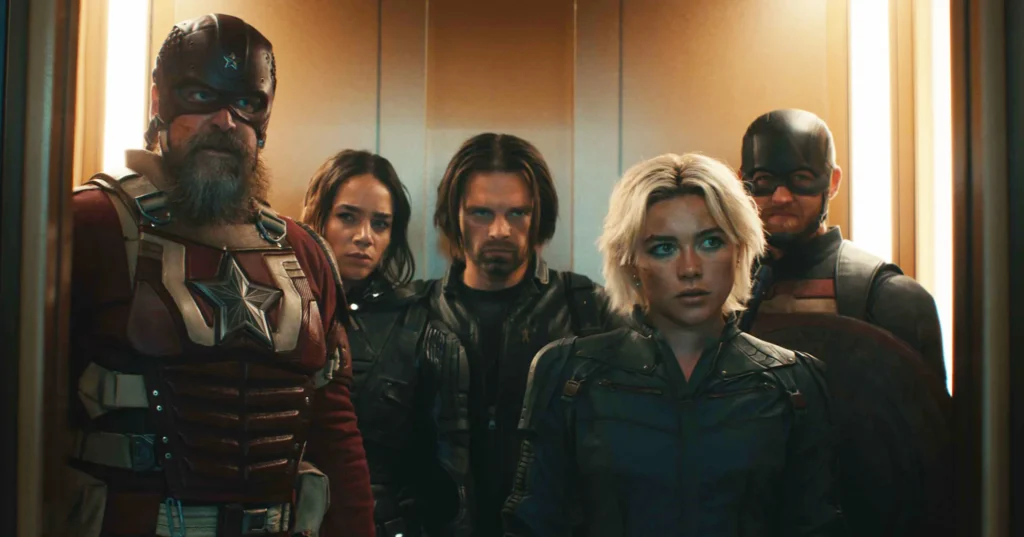
Much as the original Avengers film finally brought the big team together after five teasing solo adventures, so Thunderbolts* brings the crew together after solo introductions in everything from Ant-Man and the Wasp to Disney+ series The Falcon and the Winter Soldier. That means most of the character development heavy lifting has already been done, so the cast can just jump straight into the sarcastic, brutal fun. Russell, for example, has particular fun in making former Captain America Walker both infuriating and infuriatingly useful, much to the frustration of his definitely-not-teammates. But it’s Pugh as the war-hardened Yelena who provides the brittle soul of the team in her off-target search for redemption.
Speaking of redemption, director Jake Schreier (Robot & Frank, Paper Towns) is the latest director in the indie-to-Marvel pipeline. It’s a selection process that has had its ups, like how Ryan Coogler brought Afrofuturism to the big screen in Black Panther, and its downs, like Nia DaCosta’s muddled The Marvels. In some ways, Schreier’s addition to the MCU is reminiscent of the franchise’s greatest failure, Chloé Zhao’s turgid Eternals, but only in that it adds a new visual language. This time it’s in service to an actually worthwhile plot, and possibly the biggest reorientation of the MCU since Doctor Strange added magic to the equation. It’s also one of the MCU’s most nuanced stories, using world-saving antics to examine how childhood trauma is processed through guilt and self-punishment, leading to a final act that is both great action and an emotionally charged trip. The Thunderbolts* may not be the Avengers, but they’re the heroes we need now.
P.S Stick around for the two post-credit scenes. They’re good!
8/10
Boluwatife Adesina is a media writer and the helmer of the Downtown Review page. He’s probably in a cinema near you.




